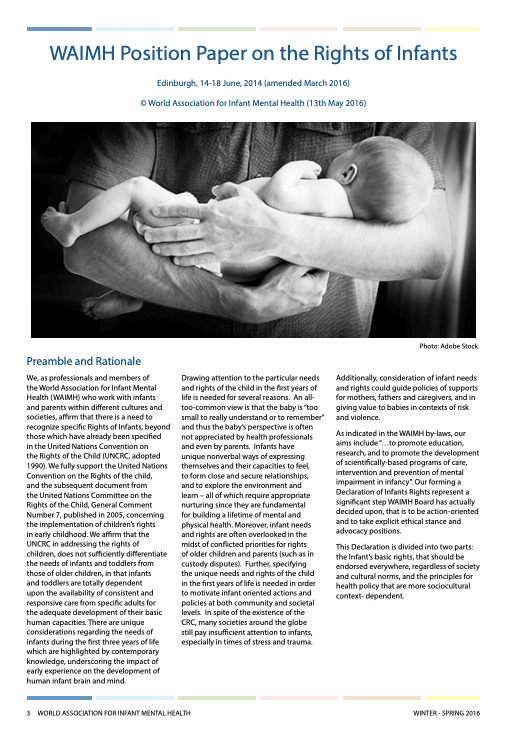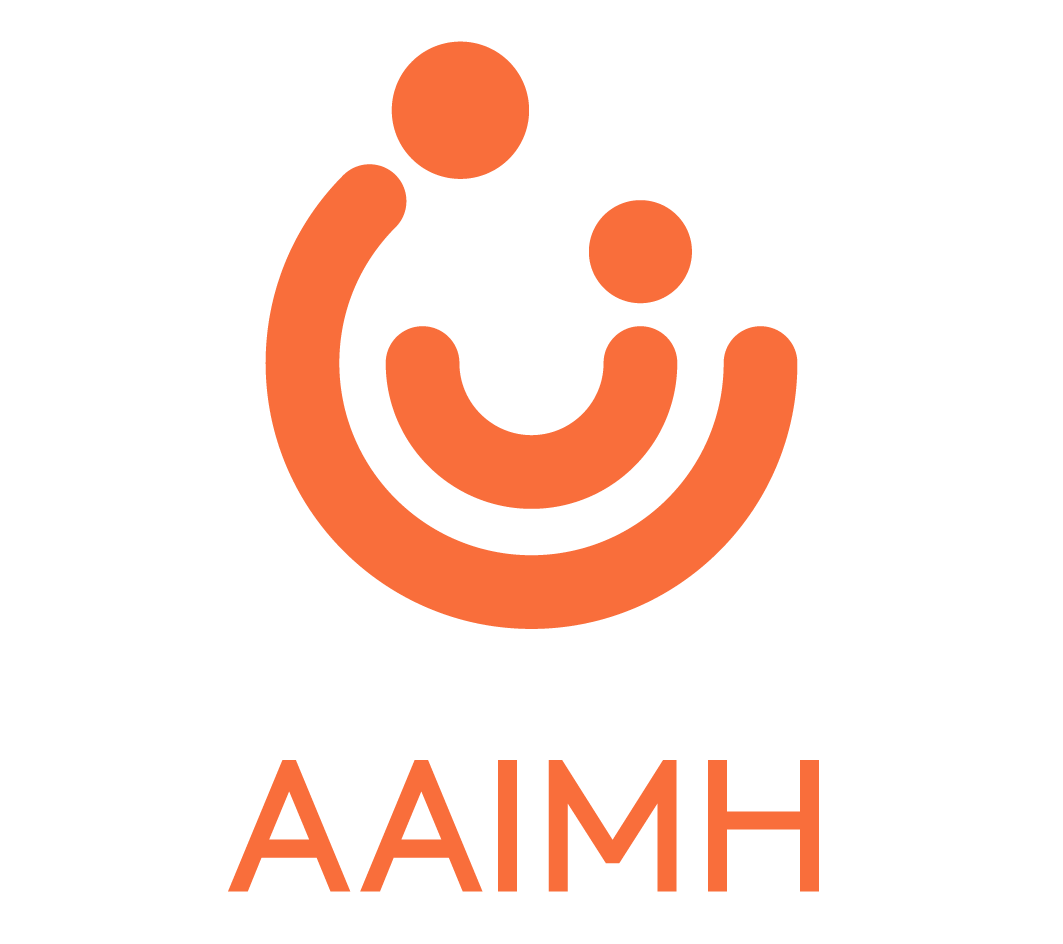Rights Of Infants
Similarly, to all adults, children and infants have civil, cultural, economic, political and social rights.
Infants and children have an additional set of rights, due to their vulnerability including the right to protection from abuse and the right to be cared for. As such, the international human rights treaty on children's rights (Convention on the Rights of the Child) was ratified in Australia in December of 1990. However, as described in detail in the WAIMH Position Paper on the Rights of Infants:
"We [WAIMH] affirm that the UNCRC in addressing the rights of children, does not sufficiently differentiate the needs of infants and toddlers from those of older children, in that infants and toddlers are totally dependent upon the availability of consistent and responsive care from specific adults for the adequate development of their basic human capacities."
WAIMH further reports that:
"There are unique considerations regarding the needs of infants during the first three years of life which are highlighted by contemporary knowledge, underscoring the impact of early experience on the development of human infant brain and mind."
As such WAIMH has suggested that an additional declaration of infant and toddlers rights is required to adequately address the additional needs of infants and toddlers and has developed a declaration which is divided into two parts
- The Infant’s basic rights, and
- The principles for health policy.
AAIMH, as an affiliate member of WAIMH, supports WAIMH's Position Paper on the Rights of Infants. The position paper is
provided here in full.

Further sources of information include:
UN Committee: Implementing Child Rights in Early Childhood
UN Committee: Rights of Vulnerable Children Under the Age of Three


